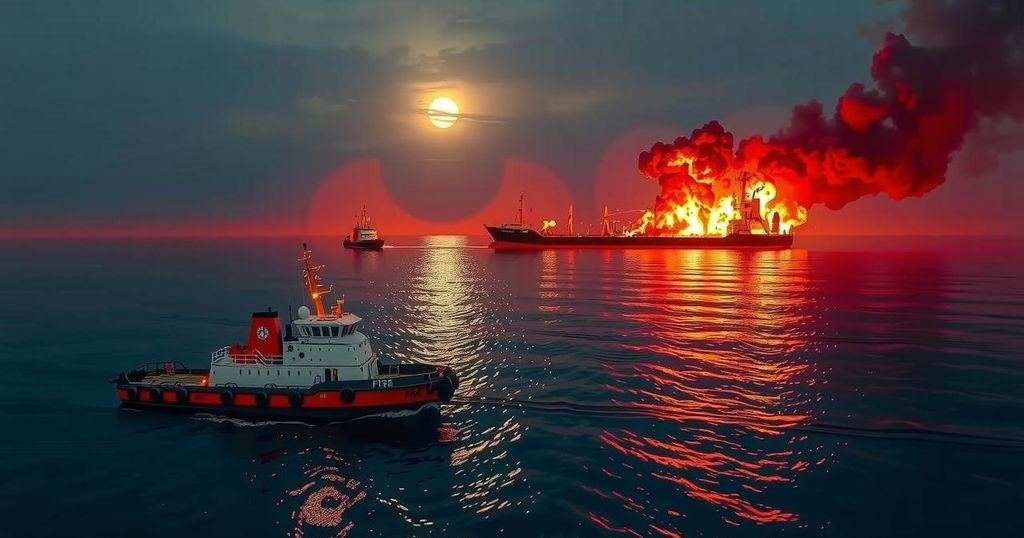Iran Reports Houthi Rebels Permit Assistance for Burning Tanker in Red Sea
Yemen’s Houthi rebels have granted permission for tugboats and rescue vessels to assist the Greek-flagged oil tanker Sounion, which has been ablaze in the Red Sea, as reported by Iran’s United Nations Mission. This decision comes in light of humanitarian and environmental considerations. Following an attack by the Houthis, which marked a significant escalation in their campaign targeting maritime shipping during the ongoing Israel-Hamas conflict, there arose grave concerns regarding the potential environmental impact should the tanker leak oil into the Red Sea, an area renowned for its ecological biodiversity.
The Pentagon disclosed that an attempt by an unidentified third party to dispatch two tugboats to the Sounion had been obstructed by the Houthis. Air Force Major General Pat Ryder expressed condemnation of the rebels’ actions, highlighting their apparent disregard for human life and the environmental risks involved. The Sounion is reported to be carrying approximately 150,000 tons of crude oil, and the European Union’s Operation Aspides has characterized the vessel as a navigational and environmental hazard.
Iran’s U.N. Mission elaborated that in light of the fire and ensuing environmental hazards, multiple unlisted nations had contacted the Houthis, advocating for a temporary truce to facilitate the entry of emergency vessels into the area. The Houthis, officially referred to as Ansar Allah, have responded positively to this request, although specifics regarding the timing of the truce have yet to be disclosed.
The Sounion was subject to a series of attacks last week, resulting in the rescue of its crew and private security personnel by a French destroyer involved in the EU’s naval operations. The Houthis have reportedly targeted over 80 vessels with missiles and drones since the onset of the Israel-Hamas conflict, asserting that their assaults aim at vessels affiliated with Israel, the United States, or the United Kingdom. However, it is evident that many of the ships attacked possess limited or no ties to this conflict, including those destined for Iran.
As the situation continues to evolve, the necessity for humanitarian intervention and the urgency in addressing the potential environmental crisis remain central concerns for the international community, prompting calls for collaborative efforts to mitigate the risks posed by the ongoing conflict in the region.








Post Comment